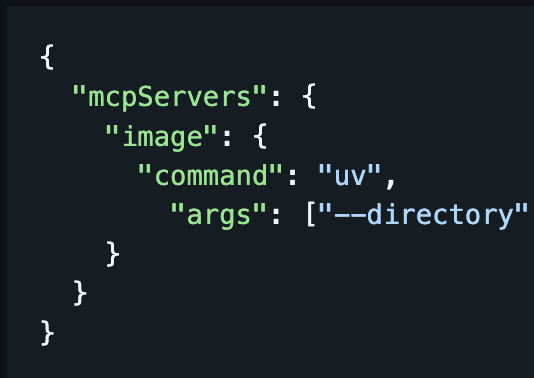Understanding MCP Servers: The Future of AI Integration
What Are MCP Servers?
MCP servers are specialized applications that implement the Model Context Protocol, a standardized communication framework designed to enable AI models to interact with external systems, databases, APIs, and services in a secure and controlled manner. Think of them as intelligent bridges that translate between AI models and the vast ecosystem of digital tools and data sources that power modern applications.
At their core, MCP servers act as intermediaries that can:
Fetch real-time data from APIs and databases
Execute specific functions or operations
Provide structured access to external resources
Maintain security boundaries and access controls
Cache and optimize data retrieval for AI consumption
The Architecture Behind MCP Servers
MCP servers follow a client-server architecture where the AI model (or application using the AI model) acts as the client, and the MCP server provides the services. This separation of concerns offers several advantages:
Modularity: Each MCP server can focus on a specific domain or set of capabilities, making them easier to develop, maintain, and scale.
Security: By acting as a controlled gateway, MCP servers can implement authentication, authorization, and data validation without exposing sensitive systems directly to AI models.
Scalability: Multiple MCP servers can be deployed and load-balanced to handle increasing demands from AI applications.
Standardization: The protocol ensures consistent communication patterns across different implementations and vendors.
Key Features and Capabilities
Real-Time Data Access
MCP servers excel at providing AI models with fresh, up-to-date information. Whether it's current stock prices, weather data, or user account information, MCP servers can fetch and format this data in a way that's immediately useful for AI processing.
Function Execution
Beyond data retrieval, MCP servers can execute specific functions on behalf of AI models. This might include sending emails, updating database records, or triggering workflows in external systems.
Resource Management
MCP servers can manage complex resources like file systems, cloud storage, or specialized hardware, providing AI models with controlled access to these systems through well-defined interfaces.
Context Preservation
One of the most powerful features of MCP servers is their ability to maintain context across multiple interactions, enabling more sophisticated and stateful AI applications.
Common Use Cases
Customer Service Automation
MCP servers can connect AI chatbots to customer relationship management (CRM) systems, order databases, and support ticket systems, enabling them to provide personalized, contextual assistance.
Data Analysis and Reporting
By connecting to business intelligence tools, databases, and analytics platforms, MCP servers enable AI models to generate insights and reports based on real-time business data.
Content Management
MCP servers can integrate with content management systems, allowing AI models to create, update, and manage digital content across various platforms.
IoT and Smart Systems
In Internet of Things applications, MCP servers can bridge AI models with sensor networks, smart devices, and automation systems.
Implementation Considerations
Security First
When implementing MCP servers, security should be a primary concern. This includes implementing proper authentication mechanisms, encrypting data in transit, and ensuring that AI models only have access to the resources they need.
Performance Optimization
MCP servers should be designed with performance in mind, implementing caching strategies, connection pooling, and efficient data serialization to minimize latency.
Error Handling
Robust error handling is crucial for MCP servers, as they often serve as critical components in AI workflows. Proper error responses help AI models make informed decisions when external resources are unavailable.
Monitoring and Observability
Comprehensive logging and monitoring capabilities are essential for maintaining and debugging MCP server deployments in production environments.
The Future of MCP Servers
As AI models become more sophisticated and ubiquitous, the role of MCP servers will continue to expand. We can expect to see:
Increased Standardization: More standardized protocols and interfaces that make it easier to develop and deploy MCP servers across different platforms and vendors.
Enhanced Security Features: Advanced security capabilities including zero-trust architectures, fine-grained access controls, and automated threat detection.
AI-Powered Optimization: MCP servers themselves leveraging AI to optimize their operations, predict resource needs, and adapt to changing usage patterns.
Ecosystem Growth: A rich ecosystem of pre-built MCP servers for common use cases, reducing development time and increasing reliability.
Getting Started with MCP Servers
For organizations looking to implement MCP servers, the key is to start with a clear understanding of your AI application's requirements and the external systems it needs to interact with. Consider beginning with a pilot project that focuses on a specific use case, allowing you to learn and iterate before scaling to more complex scenarios.
The development of MCP servers requires careful planning, but the benefits – including improved AI capabilities, better security, and more maintainable architectures – make them an invaluable tool in the modern AI toolkit.
Conclusion
MCP servers represent a significant step forward in AI integration, providing the infrastructure needed to build sophisticated, real-world AI applications. By standardizing how AI models interact with external systems, they're helping to unlock the full potential of artificial intelligence while maintaining the security and reliability that enterprise applications demand.
As the AI landscape continues to evolve, MCP servers will undoubtedly play an increasingly important role in shaping how we build and deploy intelligent systems. For developers, architects, and organizations looking to harness the power of AI, understanding and implementing MCP servers is becoming not just an advantage, but a necessity.
Conclusion
MCP servers represent a significant step forward in AI integration, providing the infrastructure needed to build sophisticated, real-world AI applications. By standardizing how AI models interact with external systems, they're helping to unlock the full potential of artificial intelligence while maintaining the security and reliability that enterprise applications demand. As the AI landscape continues to evolve, MCP servers will undoubtedly play an increasingly important role in shaping how we build and deploy intelligent systems. For developers, architects, and organizations looking to harness the power of AI, understanding and implementing MCP servers is becoming not just an advantage, but a necessity.


